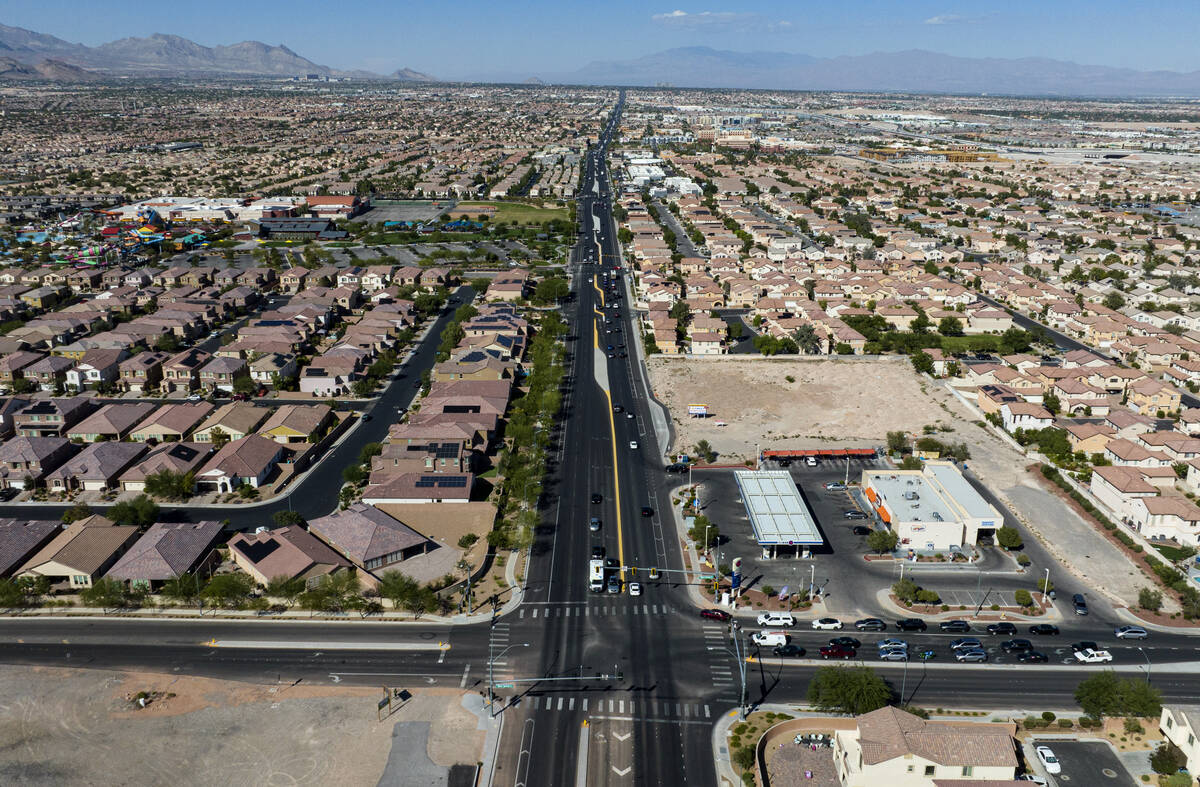Las Vegas’ housing crisis taking center stage this presidential election
The Las Vegas Valley’s affordability and housing crisis is taking center stage this presidential election, a UNLV political scientist, said.
One demographic, in particular, should be paid close attention to as the election nears: Latinos, said John Tuman, executive associate dean of the College of Liberal Arts and professor of political science at UNLV. He pointed to a Latino Community Foundation survey of Latinos in Nevada that has inflation as the top issue this election season, with rent and housing affordability driving most of the concern around inflation.
Approximately 3 in 10 Nevada residents identify as Latino with the demographic estimated to account for 20 percent of the state’s total vote this election. Tuman said Latinos have traditionally voted Democrat, however, all bets are off this election cycle given the varied polling as to who is best suited to fix the economy, which Trump polls higher than Harris in across the country.
“There’s been a lot of debate about whether or not Trump has made inroads with Latinos nationally,” he said. “I think there is evidence that he has, but it’s very sensitive to the states that you’re looking at. Latinos as a group are not monolithic and the demographic composition of different Latino population varies across different states. And so I always try to caution, not to generalize for example from what we’re seeing in Florida or even in South Texas to Nevada.”
Tuman said voters across all demographics believe housing prices have soared because of an influx of California residents moving to Nevada looking for a cheaper cost of living.
“We’ve had an influx of people from California who took equity out of their homes and then have driven up new home prices and also existing home prices in different parts of the Las Vegas metropolitan area,” he said.
Approximately 43 percent of people moving to Nevada over the past four years are from California and a survey from Built, a real estate platform, found that 38 percent of Nevada residents believe the state was “unprepared” for the out-of-state influx kicked off by the pandemic and the rise of remote work.
About 57 percent of Nevada residents are in favor of rent controls and 45 percent are in favor of caps on rent increases to address housing affordability in the state, and 48 percent of Nevada residents also worry their kids won’t be able to afford a home when they grow up, according to the same Built Survey.
“There was also supply chain issues which slowed down some building,” said Tuman about another driving factor. “And then probably most important is that we saw this spike in interest rates, which created challenges from the standpoint of affordability for first time home buyers.”
It’s the economy
Real estate stakeholders within the private sector are pointing the blame for higher prices on the Bureau of Land Management, who control 88 percent of land in Clark County, and in an email statement to the Las Vegas Review Journal, the BLM of Southern Nevada said it’s private homebuilders’ fault for not wanting to build affordable housing.
A Nevada Governor’s Office of Economic Development study estimates that by 2030 Nevada will face a severe land shortage that will hamper economic development across a wide array of industries. Approximately 70,000 acres of federal land was set aside for development in 1998 when the Southern Nevada Public Land Management Act was passed.
Today about 27,000 of those acres are still available, meaning the BLM has released only 44,000 acres for development over the past 26 years, or about 1,700 acres a year.
Contact Patrick Blennerhassett at pblennerhassett@reviewjournal.com.



















